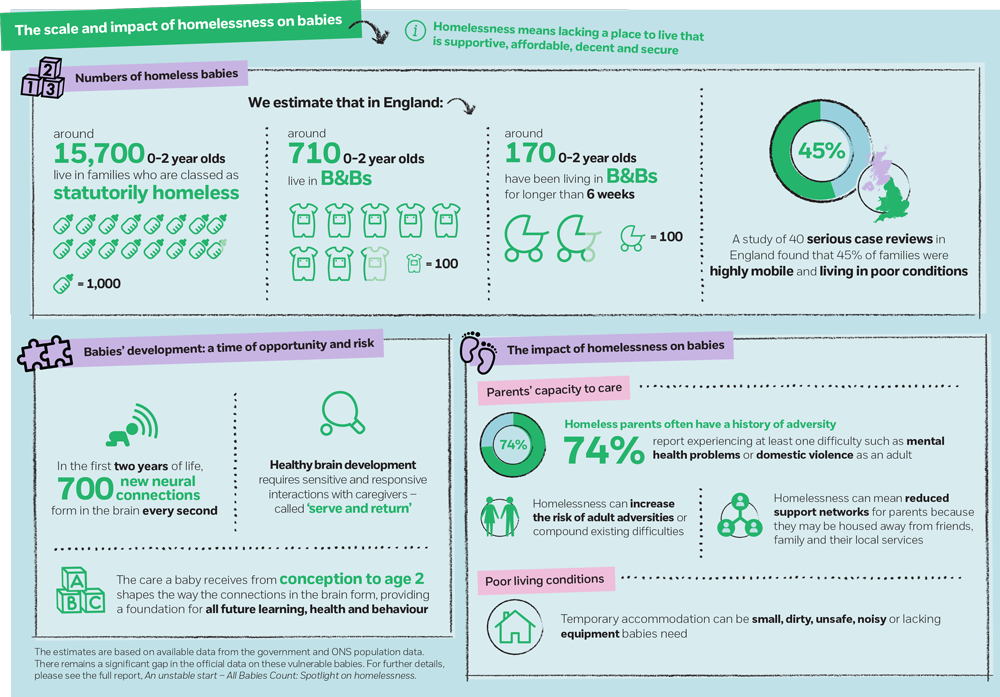This week's infographic is from a report published by the National Society for the Prevention of Child Cruelty which looks at one of the most vulnerable populations that exist: babies born into homelessness.
Early childhood experiences have strong implications on the health outcomes for children. As the infographic states, “the care a baby receives from conception to age 2 shapes the way the connections in the brain form, providing a foundation for all future learning, health and behaviour.” While it is important to have services that specifically target early childhood development, it is equally important to understand that children directly benefit from supports directed at parents. In the absence of adequate supports to help parents living in homelessness, it can be difficult for infants to receive the care and attention they need.
Supports can have an impact before birth, as mothers need to be supported over the course of their pregnancy. Diet, stress, and living conditions can influence the development of the fetus. Women living in homelessness are at an increased risk of experiencing violence, often find it difficult to access nutritious foods, and come into contact with stressors that can put their babies’ development at risk.
Regulated childcare is an important contributor to early childhood well-being. The availability of affordable childcare can make it easier for parents to work without neglecting the needs of their children. Only 17% of Canadian families have access to regulated childcare. According to a recent report by the OECD, Canada ranks last among wealthy developed nations in meeting various childhood development objectives. As a result, it's highly unlikely that homeless women have access to childcare services that are already considered unaffordable by the majority of Canadians.
Housing solutions and supports for young families are few and far between in Canada. Without the right interventions, infants living in homelessness grow up to be youth living in homelessness. Youth living in homelessness have poorer social, educational and health outcomes than youth in the general population. They are also more likely to face difficulties in transitioning into adulthood compared to youth who have parental support. Directed Housing First initiatives and supports can provide young and growing families with an opportunity to escape a cycle of poverty and destitution. Time and time again, research has shown that prevention-based efforts are cost-efficient, sustainable, and effective over the long-term.
All children have the right to have their basic needs met, to grow up in a secure environment where they have the opportunity to reach their full potential. Investing in supports and services for families living in homelessness is ultimately a matter of investing in the lives of young parents and children.


